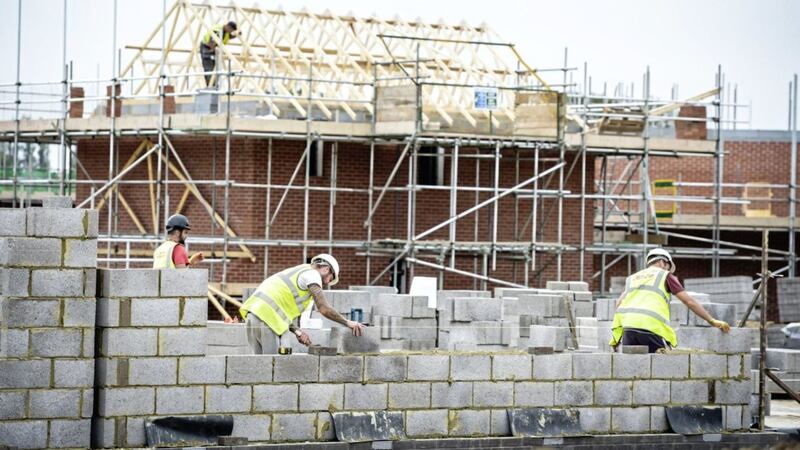THE availability of skills is one of the biggest topics of conversation in the construction sector at present. It’s not too long ago that the talk was of an over-supply of skills, and professionals leaving Northern Ireland to go to places like Dubai in search of work. Today, the issue is skill shortages, and the fact that they are pushing up salaries and potentially hampering the ability to deliver projects.
Indeed, a lack of skills has been one of the key challenges cited in the quarterly RICS and Tughans Construction Market Survey. And it’s an issue that is prevalent not just in Northern Ireland, but also elsewhere on the island and elsewhere in the UK.
One of the impacts of the skills shortages can be seen in our recently released salary survey, which shows that pay for property and construction professionals increased in the past year to a 10-year high. In the 2018 survey, professionals’ base salaries grew on average by 12 percent to levels not seen since 2009.
The survey reported that wage growth increased in all areas surveyed, with Northern Ireland and the Republic of Ireland seeing the greatest wage growth of 19 percent to £51,613, closely followed by the south east of England and London.
The average wage packages were shown to have increased by £6,271, with those with higher qualifications seeing the greatest growth.
I think this underlines that the built environment continues to be an attractive sector to work in with attractive salaries. It also highlights that the skills gap is creating a huge demand for highly qualified professionals and that this is no doubt a contributing factor pushing up salaries as companies compete for the best talent.
Addressing the skills gap requires a number of things to be done – continuing to promote property and construction as a career is part of that. So too is continuing to make the sector an attractive one to work in.
For instance, the salary survey showed that whilst pay continues to be professionals’ top priority, attractive benefit packages also appealed, with respondents citing contributory pensions, work phones, and paid subscription fees, as well as flexi-time, discounted lunches and profit share.
Another key way that skills shortages can potentially be alleviated is by attracting more females into the industry.
Somewhat encouragingly, this year’s salary survey shows that, for those aged 26 and under, the gender pay gap is 3.5 percent, much lower than the overall average for the sector. Though clearly more needs to be done on this front.
Firms need to do more to reach out to this huge potential pool of talent and to create workplaces that are attractive to women.
The reality is that firms with more of an equal gender balance have a competitive advantage, and there is no doubt that companies are starting to realise this.
Indeed, there are reasons to be hopeful that the situation is improving. 27 percent of RICS’s newly qualified members across the UK are female and enrolments are up by 3 percent on last year to 26 percent. This demonstrates that the land, property and construction sectors are increasingly becoming more attractive to women as a career. But we can’t be complacent.
Skills will no doubt continue to be a major talking point, and addressing them is crucial to ensuring that we can continue to deliver high quality built projects into the future.
:: Susan Mason is the acting director in Northern Ireland of the Royal Institution of Chartered Surveyors (RICS). RICS is the principal independent body representing professionals employed in the land, property and construction sectors. In Northern Ireland, the organisation represents over 3,000 cross-sectoral members comprising of chartered and associate surveyors, trainees and students.







